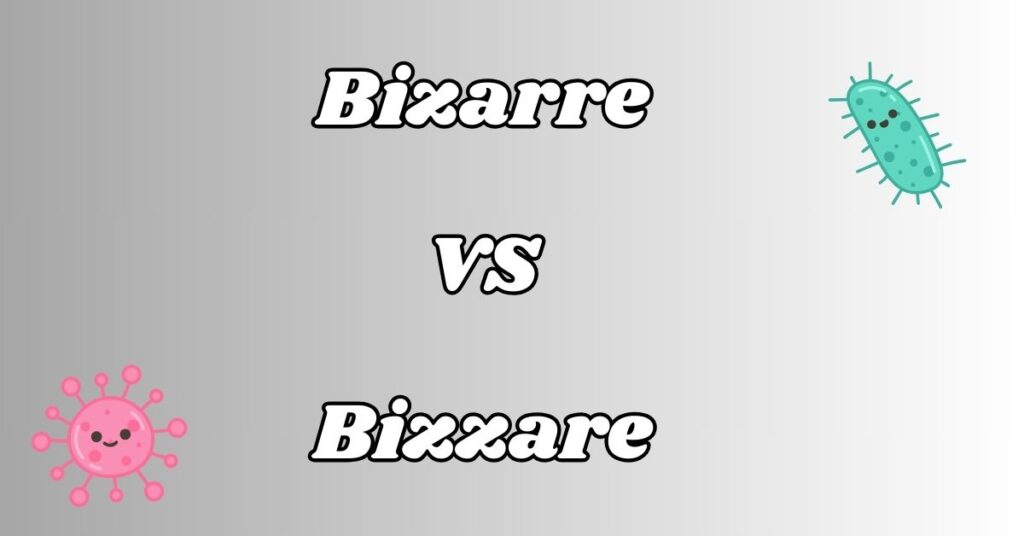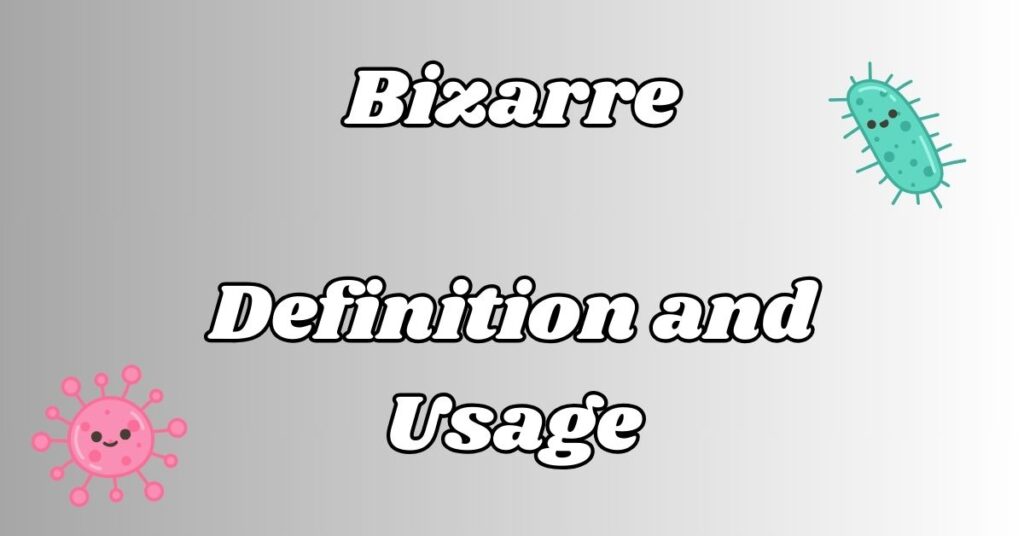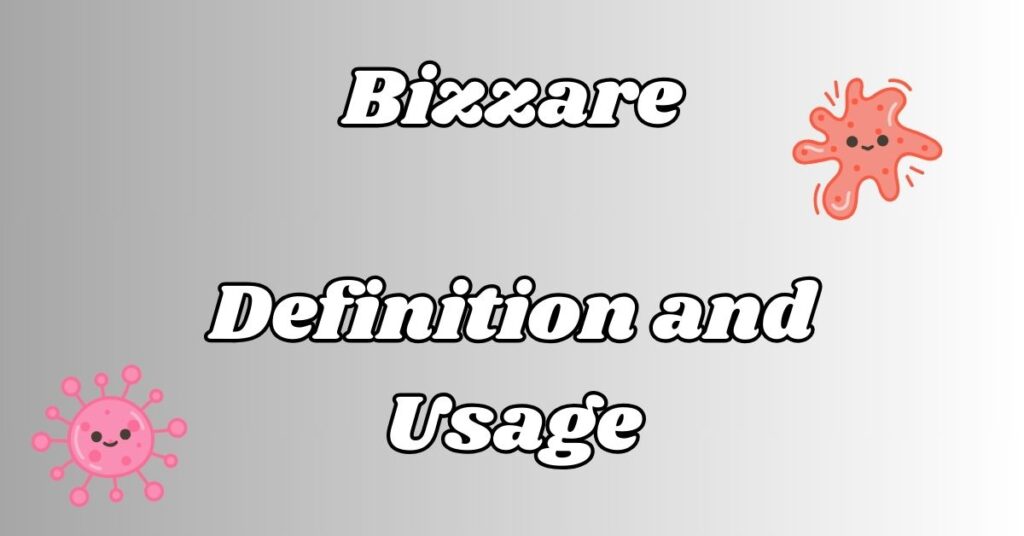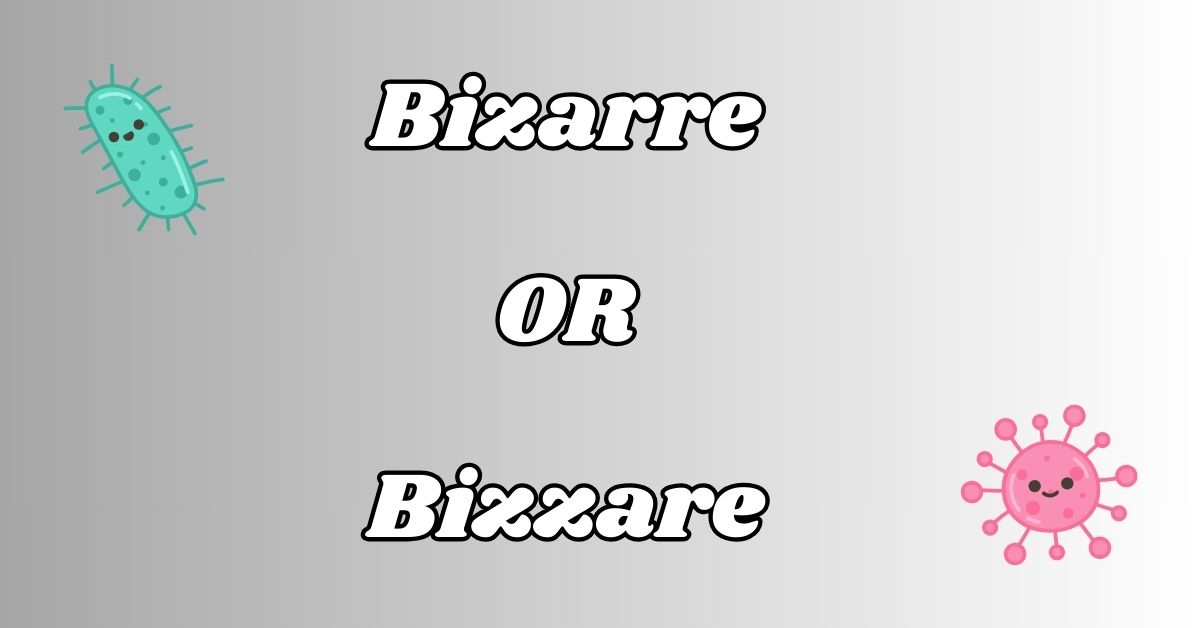Bizarre or Bizzare this common word confusion often leaves writers scratching their heads. Many people wonder which spelling is correct, and understanding this distinction is crucial for effective communication.
The term “bizarre” describes something strange, unusual, or out of the ordinary, while “bizzare” is simply a misspelled word with no meaning in the English language. In this article, we will explore the correct spelling, delve into its definition, and provide examples to illustrate its proper usage.
By the end, you’ll not only know how to spell “bizarre” correctly but also recognize its significance in enhancing your writing clarity and precision.
Quick Summary
The proper spelling is “bizarre,” with two “r“s. “Bizzare” is a misspelled word and not a word in the English language. Using the correct spelling is crucial for clear and effective communication. It’s an adjective used to describe something strange, weird, or extraordinary.
Correctly spelling bizarre is essential for formal and informal writing.
Difference Between Bizarre vs Bizzare

The difference is simple: “bizarre” is correct, and “bizzare” is an incorrect spelling. “Bizarre,” with its double “r,” is recognized in standard dictionaries and is accepted as the proper spelling when describing something odd or unconventional. It’s not a word if you spell it “bizzare.”
Remember, if you’re aiming for correct usage in your writing, stick with “bizarre.”
Origins of the Word Bizarre
The word “bizarre” originated in the 1640s, derived from the French term meaning “odd” or “fantastic.” This French word came from the Italian “bizarro,” which initially meant “irascible” or prone to sudden anger.
Over time, its meaning evolved to describe something unpredictable or eccentric, eventually leading to its current definition of strange or weird in both French and English.
An earlier theory linking it to the Basque word for “beard” is no longer accepted.
Bizarre: Definition and Usage

“Bizarre” is an adjective that describes something very strange or unusual, often interestingly or amusingly. It can refer to odd behavior, peculiar events, or extraordinary appearances.
For example, one might say, “Her outfit was bizarre,” indicating it was notably out of the ordinary. This term emphasizes the unexpected nature of the subject, making it a powerful word in descriptive writing.
Bizarre Definition
“Bizarre” is an adjective that describes something strikingly out of the ordinary, unusual, or eccentric. It conveys a sense of strangeness that deviates from what is considered typical.
The term often implies a sense of fascination or intrigue due to its uncommon nature. Understanding this definition is the first step to mastering the use of bizarre.
Uses of Bizarre in a Sentence
Here are few sentence examples demonstrating the versatility of “bizarre” in different contexts:
- The museum exhibited a bizarre collection of taxidermied animals.
- He had a bizarre dream about flying elephants.
- Her bizarre behavior at the party raised eyebrows.
- The movie had a bizarre plot twist that no one saw coming.
- It’s strange actions to see someone wearing a coat and tie at the beach.
Synonyms of Bizarre
Expanding your vocabulary with synonyms can help you add nuance to your writing. Here are a few alternatives to “bizarre“:
- Strange
- Weird
- Odd
- Peculiar
- Unusual
- Eccentric
- Grotesque
- Fantastic
- Surreal
- Outlandish
Bizzare: Definition and Usage

The term “bizzare” is simply a misspelled word and does not have any recognized meaning in the English language. It is essential to use “bizarre” to convey the intended sense of strangeness or peculiarity accurately.
Misusing “bizzare” can lead to confusion and undermine the clarity of your writing.
Bizzare Definition
As previously mentioned, “bizzare” lacks a proper definition since it is an incorrect spelling of “bizarre.” Understanding this distinction is crucial for effective communication and maintaining credibility in your writing.
Bizzare Usage
While “bizzare” isn’t a recognized word, it’s a common misspelling. People sometimes make this spelling error due to phonetic similarities or simply overlooking the double “r” in the correct spelling. It’s crucial to recognize this as a mistake to maintain credibility in your writing.
Side by Side Comparison
Let’s put them side by side to highlight the distinctions:
| Feature | Bizarre | Bizzare |
| Correctness | Correct | Incorrect |
| Meaning | Strange, Unusual | Not a word |
| Usage | Standard English | Spelling Error |
Everyday Usage Examples
“Bizarre” is commonly used to describe events, behaviors, or situations that are strange or out of the ordinary. For instance, you might hear someone say, “That was a bizarre coincidence,” or “Her explanation was completely bizarre.”
This word is versatile and fits both casual and formal contexts, making it a valuable addition to your vocabulary when describing something unusual or unexpected.
Bizarre Example
An example of “bizarre” in a sentence is: “The artist’s latest exhibit featured bizarre sculptures made entirely of recycled materials.” This usage highlights the strangeness and creativity of the sculptures, emphasizing their uniqueness. The word “bizarre” effectively conveys the idea of something extraordinary or unconventional in this context.
Examples of Bizarre in Context

- The chef prepared a bizarre dish combining chocolate and seafood.
- It’s bizarre how quickly technology changes these days.
- She had a bizarre sense of humor that not everyone understood.
- The weather took a bizarre turn, going from sunny to snowing in minutes.
- He collected bizarre artifacts from around the world.
Bizzare Example
An incorrect usage of “bizzare” might look like this: “The bizzare weather patterns confused everyone.” Since “bizzare” is a misspelled word, it should be corrected to “bizarre.”
The proper sentence would be: “The bizarre weather patterns confused everyone.” Using the correct spelling ensures clarity and professionalism in your writing.
Examples of Bizzare in Context
As “bizzare” is not a word, here are the example sentence demonstrating the correct version instead:
- I had a bizarre dream last night.
- That was a bizarre excuse.
- He has a bizarre collection of porcelain dolls.
- She made a bizarre choice of clothing for the gala.
- The incident was bizarre, to say the least.
Common Mistakes
One of the most typical mistakes is forgetting the double “r” in “bizarre.” This often happens because the single “r” sound seems sufficient when spoken. Another common error is relying too heavily on spell-checkers, which may not always catch the error if the context isn’t clear.
Recognizing these pitfalls is essential for avoiding future spelling errors.
Tips to Avoid the Mistakes
- Double-Check: Always double-check your spelling, especially for words you commonly misuse.
- Use a Dictionary: When in doubt, consult a dictionary or online spelling resource.
- Read Aloud: Reading your writing aloud can help you catch errors that you might miss when reading silently.
- Use Mnemonics: Create a memory aid to remember the double “r” in “bizarre.” For instance, “Bizarre things are Rare.”
- Practice: Practice writing the word “bizarre” in different sentences to reinforce the correct spelling in your mind.
Tips to Remember the Differences
- Association: Associate “bizarre” with words that also have double letters, such as “erratic” or “terrific.”
- Visual Cue: Visualize the two “r”s in “bizarre” as twin towers, making it a memorable image.
- Contextual Clues: Pay attention to the surrounding words in a sentence. If the word is meant to describe something odd or unusual, it’s likely “bizarre.”
- Root Word: Remembering the French origin can help you recall the spelling.
- Flashcards: Create flashcards with the correct spelling on one side and the definition on the other to reinforce learning.
More Article: Board or Baord: What’s the Difference
FAQs: Bizarre or Bizzare
Is it Bizarre or Bizzare?
It is “bizarre” with two “r”s; “bizzare” is an incorrect spelling.
Is Bizzare grammatically correct?
No, “bizzare” is not grammatically correct and should be avoided in writing.
What is the meaning of Bizarre?
“Bizarre” means something very strange, unusual, or out of the ordinary.
When to use bizarre?
Use “bizarre” to describe odd behaviors, events, or situations that deviate from the norm.
Conclusion
Understanding the difference between Bizarre or Bizzare is essential for clear and effective communication. The correct spelling, “bizarre,” captures the essence of something strange or unusual, while “bizzare” is simply a misspelled word with no meaning.
By mastering this distinction, you enhance your writing and avoid common mistakes that can lead to confusion. Always remember to use “bizarre” to convey the intended meaning accurately, ensuring your communication remains precise and impactful in both casual and formal contexts.
Related Post: Tomorrow or Tommorrow: What’s the Difference?

